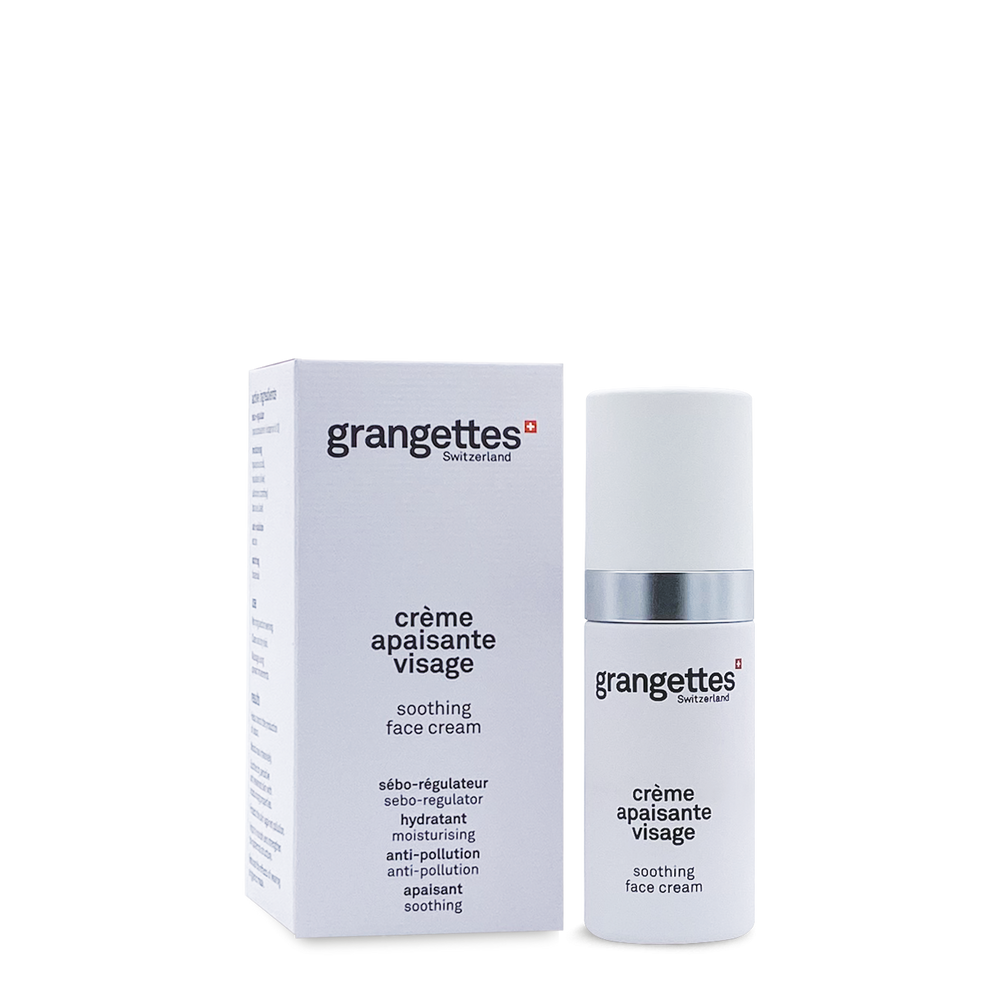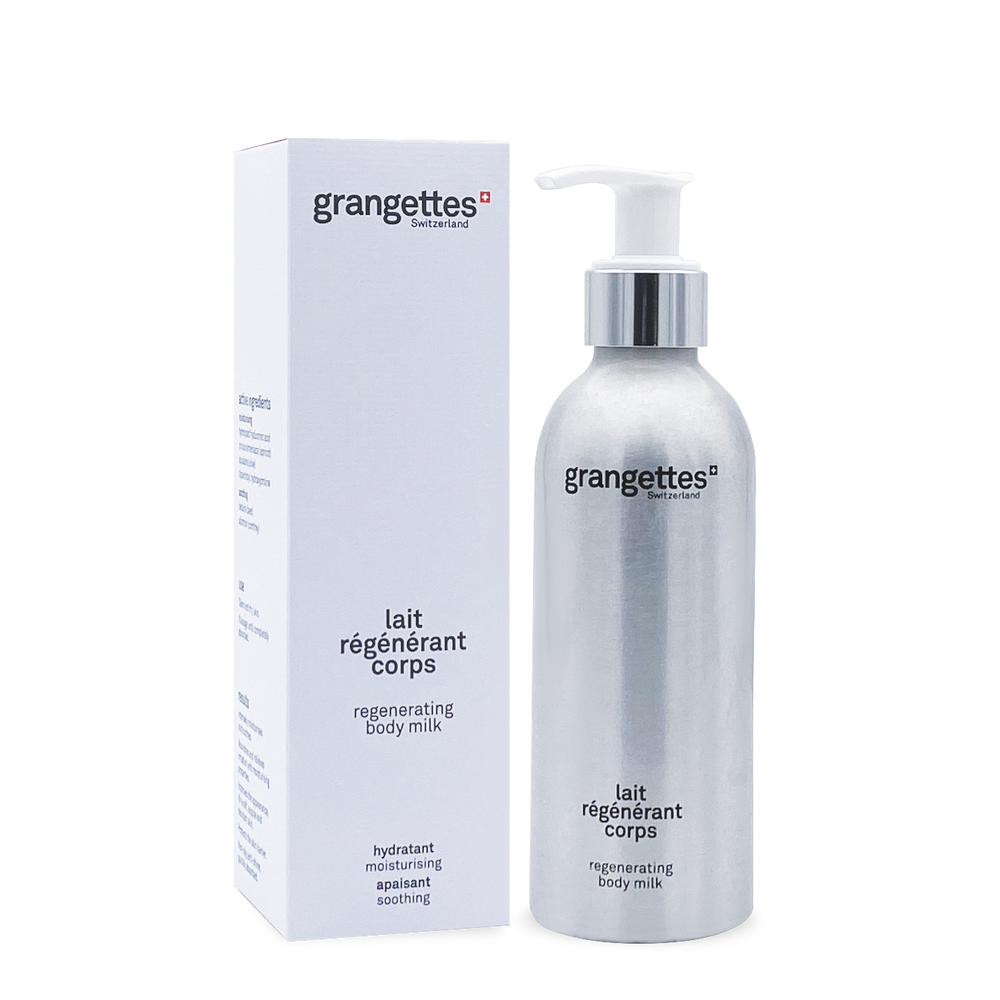Focus on the causes of cracked skin
Cracked skin is generally caused by dehydration, skin conditions, or the use of overly irritating skincare products.
Environmental factors: what impact?
Weather conditions are one of the main causes of cracked skin. When temperatures drop in winter, the air becomes drier, leading to a decrease in humidity. These conditions dehydrate the skin, making its surface more fragile and more likely to crack. In addition, cold winds can also damage the skin's barrier : the skin's natural moisture evaporates more quickly, and the epidermis becomes fragile, creating cracks.
In summer, prolonged exposure to the sun can also have dehydrating effects. UV rays affect the different layers of the skin, causing a loss of collagen and elasticity . This phenomenon can make the skin dry and prone to cracking.
Be careful of excessive washing or prolonged exposure to water
Frequent hand washing, long, hot showers, or standing in water for an extended period of time are habits that can strip the skin's natural oils. However, these oils play a crucial role in maintaining the protective barrier. But when this barrier is compromised, skin loses moisture more easily and becomes dry and cracked.
Cracked skin and skin conditions
Certain medical conditions can make the skin more vulnerable to cracks. This is particularly the case for eczema and psoriasis, which are two chronic conditions causing excessive dryness of the skin and, in more serious cases, painful cracks.
Eczema (or atopic dermatitis) manifests itself by inflammation of the skin, intense itching and dryness which can lead to cracking. psoriasis, for its part, is an autoimmune disease. It is the consequence of accelerated renewal of epidermis cells, accompanied by an inflammatory reaction. The disease causes a buildup of dry patches that can also crack.
Cracked skin intensifies with age
As we age, our skin gradually loses its ability to retain water and produces less sebum . This decrease in moisture and natural oil levels contributes to making our skin drier and more likely to crack. In fact, as our skin ages , the production of collagen and elastin , two proteins that give our skin its elasticity, also decreases, making our skin thinner and more fragile. Certain areas of the body, such as our feet, hands and elbows, are more affected by this problem, where cracks are more visible.

Chemical and irritant products
Regular exposure to chemicals such as detergents, solvents or certain cleaning products can damage the skin's protective barrier. These substances strip natural oils and can irritate the skin, causing severe dryness and even cracking.
Additionally, some soaps or hygiene products containing harsh ingredients like sulfate or artificial fragrances can lead to cracked skin.
Certain underlying medical conditions
Certain medical conditions likediabetes or hypothyroidismcan also lead to cracked skin. In the case of diabetes, poor blood circulation affects the skin, making the feet particularly vulnerable to dryness and cracking. Hypothyroidism, for its part, by reducing sebum production, can cause generalized dryness of the skin.
5 ways to soothe cracked skin
Soothing and treatment ofcracked skin mainly relies on proper care and adequate protection. A little update on the measures that help you take care of your skin...
Limit exposure to hot water
While hot showers are soothing, they can make skin dehydrated even worse. When washing, use lukewarm water and limit the amount of time you spend under the water to avoid itchy skin after showering . When you get out of the shower, gently pat your skin dry instead of rubbing it vigorously with a towel.
Use gentle products
To avoid cracked skin , it is important to choose skincare products without harsh ingredients that can irritate the skin. Choose gentle cleansers and creams formulated for sensitive skin .

Among the ingredients that take care to nourish your skin, look for wheat germ oil, shea butter, vegetable ceramides, coconut oil, avocado oil, oatmeal, hyaluronic acid or even squalane.
To nourish your face, Grangettes soothing cream is ideal: formulated with hyaluronic acid and squalane, it regulates the hydration of your skin and maintains its structure.
- Regular price
- CHF 35.00
- Regular price
- Sale price
- CHF 35.00
- Unit price
- per
Your body hydration, Grangettes regenerating body milk is your anti-crack ally. It combines moisturizing ingredients such as hydrolyzed hyaluronic acid, prunus armeniaca (apricot), squalane (olive) and dipalmitoyl hydroxyproline, for deep and long-lasting hydration. Apply it immediately after showering, when the skin is still slightly damp.
- Regular price
- CHF 35.00
- Regular price
- Sale price
- CHF 35.00
- Unit price
- per
Protect the skin against the elements
In winter, wear gloves, scarves and appropriate clothing to protect your skin against the cold and wind, which aggravate dryness. In summer, always remember to apply sun protection to prevent damage caused by UV rays.
Drink enough water
Skin hydration starts from the inside out. Drinking enough water every day helps maintain good hydration of skin cells. Add foods rich in omega-3 fatty acids, such as oily fish (salmon, mackerel), as well as fruits and vegetables rich in antioxidants, to your daily diet to improve the body's elasticity and hydration .
Use specific treatments for skin conditions
In case of skin diseases such as eczema or psoriasis, it is essential to follow medical recommendations. Dermatologists can prescribe specific topical corticosteroid creams or emollients that help reduce inflammation and repair the skin barrier. Also be sure to avoid potential triggers like allergens or irritants.






